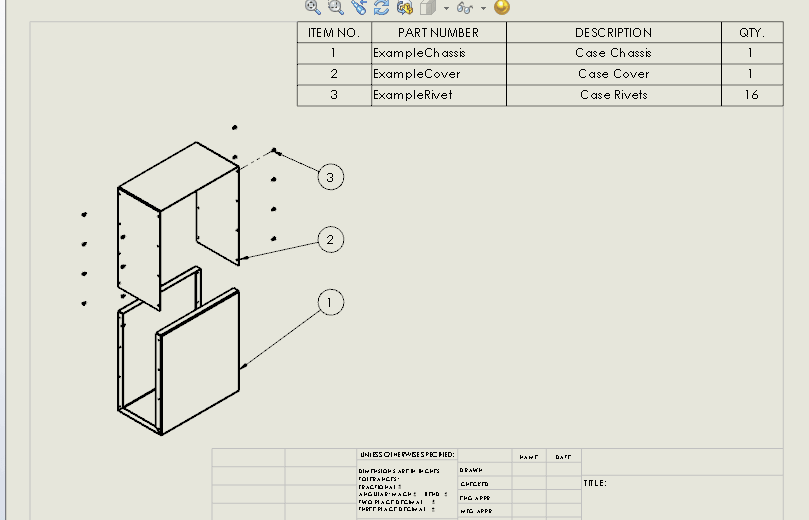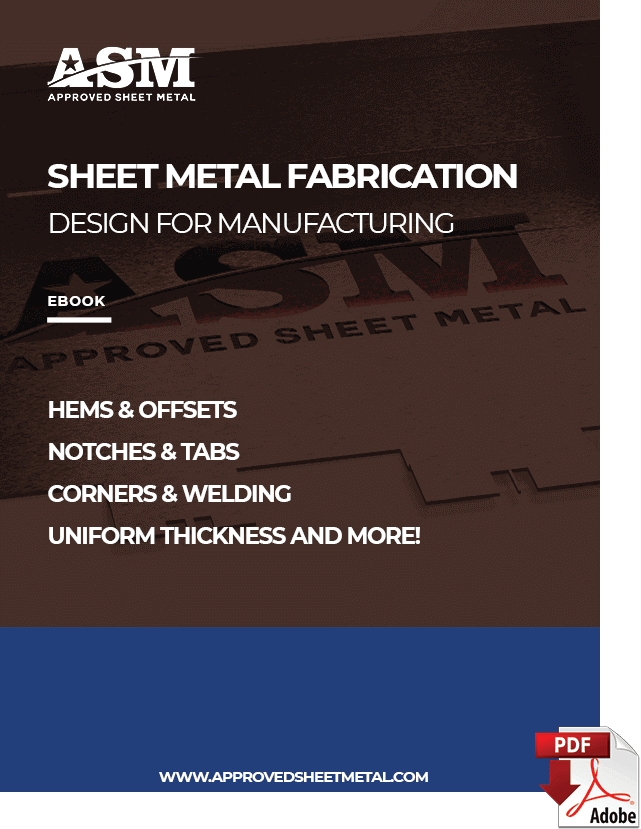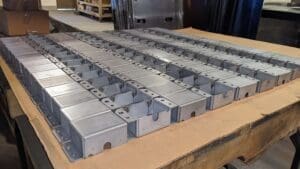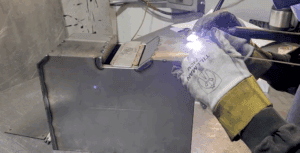Last updated on May 20th, 2025 at 07:47 am
When job shops outsource precision sheet metal jobs to a metal fabrication shop, it's essential that they provide all the necessary details about the project.
It’s our responsibility to help you meet your customer's requirements—and make you look really good in the process! We do our very best work when we have sufficient information, including internal specification documents.
Table of Contents
- 1 What Are Internal Specification Documents?
- 2 The Power of Finishing and Edge Break Details in Internal Specifications
- 3 Best Practices for Obtaining Internal Specification Documents
- 4 Sheet Metal Design for Manufacturing
- 5 Metal Fabrication Internal Specification Documents FAQ
- 5.0.1 What are internal specification documents, and why are they crucial for precision sheet metal jobs?
- 5.0.2 How can I obtain internal specification documents from customers for a precision sheet metal job?
- 5.0.3 Why might companies be hesitant to share internal specification documents for a project?
- 5.0.4 How often should I check for updates in internal specification documents provided by customers?
- 5.0.5 How do internal specification documents benefit both the fabricator and the job shop outsourcing the project?
What Are Internal Specification Documents?

Internal specification documents cover requirements, protocols, and expectations for things like hardware, materials, finishing, quality control, and certifications.
Some companies provide robust, 70-page documents listing specifications for every foreseeable circumstance while others have more streamlined resources.
Having access to this information at the start of a project can expedite the precision fabrication process. Internal specification documents help us ensure we're meeting expectations that might not be listed on the RFQ.
If you have internal specification documents for your customer, please share them with us right away so we can get your custom metal fabrications right the first time.
The Power of Finishing and Edge Break Details in Internal Specifications
For mechanical engineers, internal specification documents can be the difference between a part that just “meets print” and one that’s truly production-ready. One often overlooked area where these specs provide critical value is in finishing requirements and edge treatments.
Internal specs frequently define expectations around:
- Edge breaks – Whether edges should be sharp, rounded, chamfered, or deburred, and to what radius or angle.
- Surface grain direction – Particularly for visible panels or brushed finishes, consistent grain direction is critical to aesthetics and branding.
- Burr removal – Specs may call for zero-tolerance burrs or special deburring processes on specific features like slots, vent patterns, or tabs.
- Finish class – Clarifies if parts require cosmetic finishing, masking, or blending before powder coating or anodizing.
These kinds of finishing notes rarely appear on RFQs or basic part drawings—but they’re often expected. When left undefined, shops may default to commercial standards, which might not meet the customer’s functional or cosmetic expectations.
By including this level of detail in internal specification documents—and passing that information to your fabricator up front—you ensure your parts will meet both technical and aesthetic requirements. This proactive step reduces rework, speeds up finishing lead times, and improves the overall quality of the final product.
For engineers juggling tight tolerances and demanding end-use applications, this kind of precision in communication is essential.
Best Practices for Obtaining Internal Specification Documents
Asking customers for internal specification documents isn't always easy. Some companies guard this information closely and may resist sharing it with you.
Over the years, we've learned a few tricks for obtaining these documents that we’re happy to share with you:
- Ask the engineers. Engineers usually have the documents you're looking for—not buyers. Buyers may not know about or have access to this information, so asking them for it could create more work (for you and them!) and unnecessary delays.
- Explain the necessity. Be clear about why you're requesting internal documentation and emphasize that you'll keep proprietary information confidential. You’ll have a better chance of success if you outline why this information is crucial and how you'll use it instead of asking for it with no explanation.
- Check in about updates. Companies change their internal specifications as materials, technologies, and requirements evolve. Keep the line of communication open with your contact so you're in the loop when your customer updates their documents. If the documents you have are multiple years old, check with your customer to make sure you have the most current information, then relay it back to your sheet metal fabricator.
Manufacturers are only as good as the information they have. When we partner with you to fulfill your customer's orders, we want to be 100% certain we're meeting their requirements.
Plus, we want to make you look good! This information helps us fabricate your parts efficiently and makes you look like a detail-driven rockstar to your customers.
Let's work together on your next rapid sheet metal fabrication project. Request a quote today, and we’ll get in touch with you shortly.





